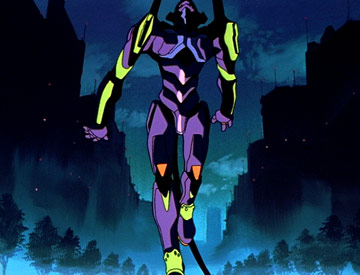“Who gets to pilot the Mech?” A thread on the Leviathan, robot anime, energy systems, and economic coordination rights. 1/n
Our energy systems are mecha https://en.wikipedia.org/wiki/Mecha ">https://en.wikipedia.org/wiki/Mech... — giant cyborg machines that we build together and then attempt to control. As with all mechs, they accumulate power far beyond that of their human creators, dramatically raising the stakes of control. 2/n
But energy systems aren’t the original mechs. They are preceded by at least three others that humans have constructed in the past 5000 years: Religions, States, and Corporations. 3/n
These first-gen creations exemplify the qualities of mecha: power far beyond that of their creators, the ability to coerce and induce human behavior at scale, and lifespans that far outlast those of their human “pilots.” 4/n
David Runciman of Cambridge Uni and @TPpodcast_ has best articulated this concept of States and Corporations as ‘robots’ or ‘autonomous agents’ in conversation with @azeem “Superintelligence Already Rules the World” https://hbr.org/podcast/2020/01/superintelligence-already-rules-the-world">https://hbr.org/podcast/2... 5/n
Runciman ties the mech/robot conception back to Hobbes, who actually uses the term ‘automata’ to refer to States in Leviathan, way back in 1651. 6/n
Another eminent political scholar, @ByYourLogic, extends the robotic metaphor to US politics, observing that classic anime Neon Genesis Evangelion is our modern metaphor for political life: winning the presidency is like climbing into an Eva mech. https://www.podchaser.com/podcasts/chapo-trap-house-5429/episodes/364-human-deadspinality-projec-47470199">https://www.podchaser.com/podcasts/... 7/n
But our energy systems are interesting not just because they are mechs, but rather because they are constantly co-created by our first-gen mechs. All modern energy systems are products of a long-run project between our States and our Corporations. 8/n
“Energy systems as 2G mechs” has explanatory value for global energy system diversity. Specifically, the energy system of each country or jurisdiction is a product of its historical power relationship between States and Corporations. 9/n
In this light we can re-interpret the energy systems of countries large and small as cyborgs that bear the imprints of the first-gen mechs, and of the first-gen mechs& #39; relationship with each other. 10/n
Of course just as any mech reflects its materials, energy system structure embodies the physical world where it is built — a unique local blend of cars and oil, coal and hydro, wind and sun, pipes and wires, roads and rails. 11/n
But beneath their physical embodiment, energy mechs also strongly bear the imprint of the specific human factions that pilot the State, insofar as that decision generally sets the scope and nature of Corporate control over the energy system. 12/n
Indeed, the contest to control the State is central in deciding what role Corporations have in building and piloting the energy mech. 13/n
This contest is best illuminated by @sanjuktampaul via the concept of “allocation of economic coordination rights” https://lpeblog.org/2018/09/21/the-allocation-of-economic-coordination-rights/">https://lpeblog.org/2018/09/2... 14/n
This vibrant new thread of legal scholarship directly examines economic coordination rights and makes explicit the idea that law and policy hold the authority to allocate said rights between States and Corporations 15/n
In anime terms, Paul’s work is as a critical examination of “who gets to pilot the mech.” 16/n
Looking ahead, there are further avenues to be explored here, for example, how and when to enhance democratic control over energy systems. Can the people pilot the mech? 17/n
And relatedly, the $25 trillion dollar question: whether our first-gen mechs — beleaguered, beat-up, and distracted — can rally to design and build a new wave of zero-carbon mechs. 18/n
Looking forward to returning to these issues over coming weeks.
And remember -- have you hugged your mech today? 19/19
And remember -- have you hugged your mech today? 19/19

 Read on Twitter
Read on Twitter


